Home » Jazz Articles » Interview » Chuck Deardorf: Hanging On To The Groove
Chuck Deardorf: Hanging On To The Groove
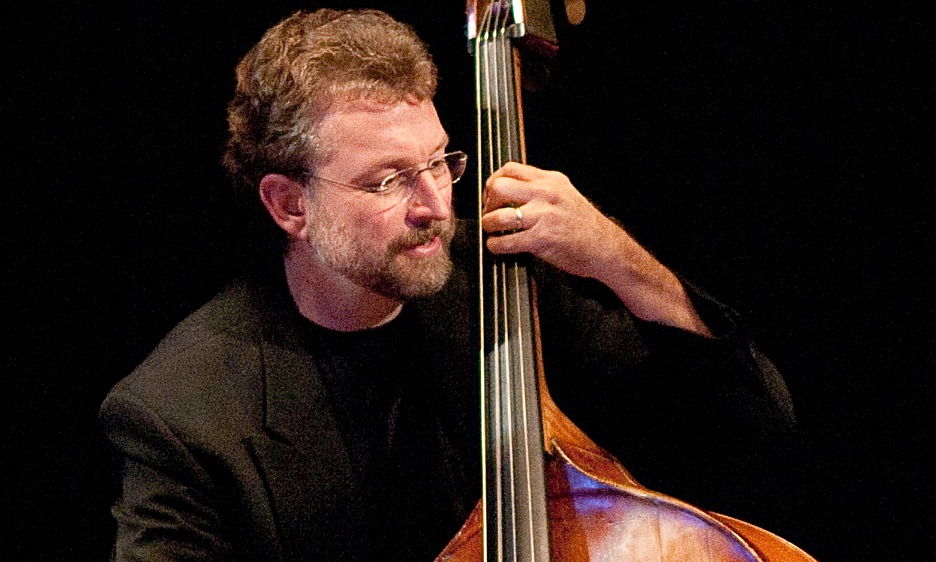
As a bass player, you're singing, but you're also hanging on to the groove.
—Chuck Deardorf
Deardorf eventually joined the ranks of the esteemed Cornish College of the Arts, ascending to leading a well regarded jazz program that featured such luminaries as

Gary Peacock
bass, acoustic1935 - 2020

Hadley Caliman
saxophone1932 - 2010

Jovino Santos Neto
pianob.1954
With a reputation as a top shelf sideman well established, Deardorf released his first recording as a leader in 2011. On the eve of the release of his second recording, Perception (Origin, 2019), Deardorf was kind enough to sit down for an interview to provide insights into his career, approach to music, and life as an in demand sideman.
All About Jazz: Tell us about your upbringing, and how music entered the picture. Were your parents musical?
Chuck Deardorf: My mother was, she had played cornet is high school well. She played stride piano for herself, and for us. She passed away about seven years ago, and she had Alzheimer's ten years before that. Before that started, I brought a DAT machine over her house and recorded her. I did another session where I played with her. For her 80th birthday, I made a CD.

John Bishop
drumsb.1959
AAJ: How special and beautiful!
CD: I had brothers and sisters who played, so it wasn't mandatory, but it was encouraged.
AAJ: Were you studying music in school, or was this a pursuit outside of academia?
CD: Starting in fifth grade I played trombone through college. I was a pretty good lead player, I didn't improvise. I picked up bass at fifteen to play in a rock and roll band. I didn't know anything. I went to Evergreen St. College in the early 70's, they had a jazz band. They had an 8-Track studio there. It was a great experience, I really learned how to listen to what I was doing.
AAJ: Can you identify a turning point that made you realize you were going to become a professional musician? Was there a defining moment or was it more of a gradual thing?
CD: That came later, after college. I was making $300 a week in 1975. Rent was $100 a month. I started playing jazz on electric. I realized I needed to play upright to get the good gigs. I was pretty much self taught. Later on I went and studied with Ron Simon, from the Seattle Symphony. This was later, in my forties. It was the only thing I wanted to do. In high school I did music and art. I was painting and drawing, and I wasn't bad. I worked a couple of day jobs. I realized I was working harder for less. That was a great motivator. I did realize early on from the teachers that I had, that to get really good at something, you had to work. So that was my goal, to get really good playing the bass. When I got into jazz, I realized I wasn't much of a composer, so I had to get really good. That was going to be my voice.
AAJ: And you did.
CD: I'm still working on it Paul. It never ends, that's what I love about it. Before I learned upright, I heard

Eberhard Weber
bassb.1940

Charlie Parker
saxophone, alto1920 - 1955

Weather Report
band / ensemble / orchestraAAJ: In the late seventies and eighties you were sequestered firmly at the old Jazz Alley in Seattle's University District. Talk about your time there, who you played with and the impact it had on your musical persona.
CD: It started with Parnell's actually. It was the first jazz club in Seattle that I worked in. I was working a lot with Denny Goodhew, and " data-original-title="" title="">Barney McClure at that time. Barney was getting gigs there at the time with his own band, and backing up people like

Eddie "Cleanhead" Vinson
saxophone, alto1917 - 1988

Zoot Sims
saxophone, tenor1925 - 1985

Monty Alexander
pianob.1944

Kenny Barron
pianob.1943

Kenny Burrell
guitar, electricb.1931

George Cables
pianob.1944
In 1989 or so, I got a call from

Larry Coryell
guitar1943 - 2017

Buster Williams
bass, acousticb.1942

Billy Hart
drumsb.1940
AAJ: You have been an active mentor in education, most notably as Director of Jazz Studies at Cornish College of the Arts in Seattle. How does your own upbringing in jazz parallel your approach as an educator?
CD: I was the Jazz Program director at Cornish. Hugely. Being self taught, I learned all of the pitfalls of that. At the same time, I learned that if your determined enough you can learn how to do stuff. Do the work, not just the schoolwork. Do your own independent digging down to learning your instrument, listening, transcribing, taking the time to get good at what you're doing.
AAJ: And do it because you enjoy it and are inspired by it.
CD: Yes, and if you're not inspired by it, then you should be getting paid really well.
AAJ: You have played with a number of jazz legends over the years, as the first call bassist in the Pacific Northwest. Through it all you have maintained a personal style that is supportive, and at the same time, out front of the music. Talk about playing within different styles and forms of artistry with this great variety of artists, all the while establishing your own original voice.
CD: I think it's imperative. You do it through other people, it doesn't happen in a vacuum. Part of what I do as an improviser comes from being a trombone player. I could play lines, I already had that in my head. When you're a bassist, everyone is pounding it in your head to play the root. When it's time to solo, play what's in your head. You have to find a way to just sing. As a bassist, you're singing, but you're also hanging on to the groove.
AAJ: You push the beat, but it is still somehow relaxed and swinging. Is there anything technical you would say about that, if someone wanted to learn to play like you?
CD Lean in, lean into the time, unless it's a style of music where the rhythm and time is right down the middle. Straight R&B, funk, is right down the middle. It feels nervous if you push it. The stuff that gets me excited is when you're not rushing, but you're all moving forward. You're moving time forward and it's exciting to me. When that makes sense, it's what I naturally feel.
AAJ: I've gotten the impression that sometimes bandleaders aren't very interested in a bassist bringing a lot to the bandstand. The bassist might feel like bringing up the level of their contribution would not be warranted, if not actively disliked! Do you strike a balance between what a bandleader is asking for, and your own artistic tendencies?
CD: Oh sure, you have to. We have a job as well as the art. There's the art, and then there's the job if you're in the rhythm section. You have to do them both, and it depends on the music. If you're going to play completely free form, that's different, although it still requires that someone takes care of business at home sonically.
AAJ: Charlie Haden would be a classic example of that.
CD: Charlie Haden was a huge influence for me because I was listening to all these people who were spitting out all these notes, then all of a sudden here is someone playing very simply. But it was beautiful and the sound was just unbelievable. It's like the eye of the hurricane. Same thing with Mahavishnu Orchestra, and Rick Laird. He was the only guy in the band who hardly played any notes. Ron Carter in Miles' quintet in the 60's, same thing. If everyone is playing everything all the time, it doesn't do it for me.
AAJ: What are some of the keys to success as a side musician that you can share with young musicians coming up?
CD: If you want to play with someone, you have to listen to their music. Listen to the recordings, and see what they're about. That's a starting point. Then you can put your own spin on it, and make them comfortable. Then they're more apt to let you do your own thing. If you come in and say, "I only play one way, so deal with it," they'll deal with it by never calling you again. To me, part of the job is to make the band sound good. Make it feel good all the time. Then what you do on top of it is just gravy. It's a simple equation that sometimes people don't understand. I have a story that I should tell you.

Barney Kessel
guitar, electric1923 - 2004

Scott LaFaro
bass1936 - 1961
AAJ: Some lessons can only be learned through experience!
CD: The best kind of advice.
AAJ: Your career as a sideman and educator has been prolific. You released your first album, Transparence (Origin, 2011), in 2011, and will soon release a new album, Perception (Origin, 2019). Tell us about the differences in approach and the music itself.
CD: On Transparence I got into the deeper recording, did some overdubs, slicing and dicing, just because you can. One of the differences with this record is that I wanted to make it just a blowing record. We did a couple takes of each tune, I didn't overdub any solos. I wanted the energy of playing live. I wanted it to be open, here's some tunes that I really like. I didn't have them heavily arranged. I had some ideas, we kicked them around, and we just played them.
AAJ: Perception features compositions from a diverse group of composers, including James Knapp,

Keith Jarrett
pianob.1945

Steve Swallow
bassb.1940

Matt Wilson
drumsb.1964
CD There's two groups. The first part is with Matt Wilson,
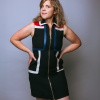
Dawn Clement
piano
Hans Teuber
saxophoneThe other section is a quartet with

Gary Hobbs
drums
Marc Seales
pianob.1963

Thomas Marriott
trumpetb.1975
AAJ: You have a reputation of being a perfectionist, in the sense that your work is always perceived to be at a consistently high level. Do you carry that same expectation of perfection from the bandstand to the studio?
CD: I do? Well, at one point I had to stop listening to it. It's like a painter adding and adding. It's not like changing a tune, more like sonic stuff. I'm very into making as clear a recording as possible.
AAJ:: Who did you work with for this recording?
CD: The first five tunes were done at Studio Litho with Floyd Reitsma, and the last three at Studio X with Reed Ruddy. I wanted to get into Studio X before they closed, and I mixed there as well. The thing about X is that he still had a lot of the old analog stuff in there. Hopefully he's going to reopen with it. I like technology and also the old ways of doing it
AAJ: There have been some amazing musical personalities over the course of your career in Seattle, including fellow colleagues at Cornish. Talk about some of the musicians that have impacted your career over the past 40 years.
CD: How long to you have? " data-original-title="" title="">Bill Ramsay, I started playing with him right out of college. He's just a wonderful player and human being. He's ninety and still playing.

Hadley Caliman
saxophone1932 - 2010
Floyd Standifer I got to play with a bit, such a wonderful soul.

Jay Thomas
saxophone, tenorb.1949
Gary Peacock was teaching at Cornish when I first arrived. I started teaching there because Gary didn't want to teach the electric bass students. Jim Knapp hired me. I never studied with Gary, but I got to observe him a lot. He was and is an amazing artist.
Jim Knapp was kind of a mentor for me when I first got to Seattle. I played in his composers and improvisers orchestra. He helped me get the gig at Cornish. He's just a musical fountain.

Buddy Catlett
bass, acoustic1933 - 2014
Barney McClure helped me a lot in my younger days. We got to play with a lot of people together.
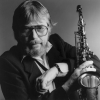
Bud Shank
saxophone1926 - 2009
Denny Goodhew was huge for us. We lived together for a couple of years up on Capitol Hill, and played all the time. He was an amazing, gifted musician.
I met George Cables 35 years ago. One of my very favorite musicians and people. We have spent a lot of time together, rooming together at Jazz Port Townsend. He's like the Black Knight in Monty Python-through all he's been through, he just keeps coming back.
AAJ: You mentioned saxophonist Denny Goodhew. He isn't playing anymore due to a series of health issues, but he was incredible. You would see him on a bebop gig one night, and playing the next with Ralph Towner, Gary Peacock, and Jerry Granelli.
CD: There used to be a jam session every Monday night at Parnell's with me, Denny Goodhew,
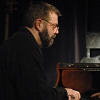
Dave Peck
piano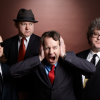
Dave Peterson
guitar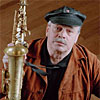
Phil Woods
saxophone, alto1931 - 2015
AAJ: Putting this all into a linear perspective, you were getting some opportunities at a very young age.
CD Another band I got to hear a lot when I was underage in college was
Red Kelly
bassb.1927

Don Lanphere
saxophone1928 - 2003
AAJ: And in Chicago and Philly.
CD: My first trip to New York was with Don, Marc, and Dean in 1984. He played the West End Cafe for 10 days. It was right near Columbia. We played there and all these bebop players who Don used to play with in the 40's and 50's came out and sat in. It was really fun. The first night we played 2 ? hours straight of fast tunes. I finally took the bass, and set it on the ground and said, "Don we're taking a break. You can keep going if you want." He was just so happy to be back there and playing. He was great, very supportive of the younger guys. Very positive guy. He had been to the brink and came back.
AAJ: You have battled kidney disease, and received a kidney transplant, a gift of love from your brother. Tell us about that experience.
CD I had a kidney transplant in 2011, just after the last album came out. My father was a kidney patient, his father died of kidney disease, so it's a hereditary thing. Out of five children, I was the only one who got it. My younger brother, bless his heart, got himself thoroughly tested, I was a few months away from having to do dialysis. He donated. I still like him! It was an incredible experience. It was very humbling, and I realized my life would be very different now if that hadn't happened.
AAJ: The trio format in jazz is especially compelling for bassists, bringing the sound close to the front of the music. What are some of the unique aspects of the trio for you as a player?
CD: There is more opportunity to be a counter voice, to play contrapuntal and be a second solo voice. Of course the obvious example is Scott LaFaro with

Bill Evans
piano1929 - 1980
AAJ: Are you as passionate about the electric bass as you are about the upright?
CD: Yes, they're two different voices. It's like tenor and soprano. Unlike a lot of bassists who double, I came at it from electric before upright, whereas most tend to add electric and start with upright. I just see it as two different sides, just different tools. It opens things up, and it depends on the music. What does the music need? I like fretless because it can be very expressive. In April, it will be 50 years since I've been playing electric bass. It's tricky. On upright there are positions that are set from 500 years of classical study. Fretless electric, you really have to put your fingers in the right spot, or it's out of tune.
AAJ: Have you performed with other bassists, either in an all bass group, or a two bass band like Coltrane's efforts with

Jimmy Garrison
bass, acoustic1934 - 1976

Reggie Workman
bassb.1937
CD: Denny Goodhew had a double bass quartet back in the day.

Dean Johnson
bass, acousticAAJ Is there anything you've always wanted to accomplish but just haven't gotten around to doing yet?
CD: There are people I'd love to play with still. I've been really fortunate to have played with a lot of people who aren't here anymore that unfortunately, younger cats won't get the chance to play with. I'd like to tour a little bit more. At some point, I'll wind my teaching gig down at Cornish. I still love teaching, so not yet.
AAJ: What's the balance in music between intellect and soul?
CD: For me, the technical part of it is the means to the end. It's not the art. It enables you to forget about what type of songs you're playing on. You don't really forget, you put it in your body, you put it in the back of your head, and that way you can let your heart play, and it will play things that you want, that you hear. At least as close as you can get. That's what we're all striving for, playing what you're hearing in your head. The technique is a means to it. There are people who have no technique at all and still can play what they hear. Take a look at some of the old blues players.
AAJ: Jazz is of course, an extension of the blues.
CD: It is for me, but not for everybody. Some people are coming at it from new music, something that doesn't have anything to do with the time or the harmony. That's great if that's what you hear. It's not what I hear.
AAJ: Finally, what would you be if you weren't a bassist?
CD: I might be an artist, but I don't know if I'm good enough to do that. I'm a big history buff, I could be a history professor.
Tags
Interviews
Paul Rauch
United States
Washington
Seattle
Gary Peacock
Hadley Caliman
Jovino Santos Neto
John Bishop
Eberhard Weber
Gary Burton
Charlie Parker
Weather Report
Denny Goodhew
Barney McClure
Eddie "Cleanhead" Vinson
Chet Baker
Zoot Sims
Monty Alexander
Kenny Barron
Kenny Burrell
George Cables
Dean Hodges
Larry Coryell
Buster Williams
Billy Hart
Barney Kessel
Scott LaFaro
James Knapp
Keith Jarrett
Steve Swallow
Matt Wilson
Dawn Clement
Hans Teuber
Gary Hobbs
Marc Seales
Thomas Marriott
Bill Ramsay
Floyd Standifer
Jay Thomas
Buddy Catlett
Bud Shank
Dave Peck
Dave Peterson
Dean Hodges
Phil Woods
Red Kelly
Don Lanphere
Bill Evans
Jimmy Garrison
Reggie Workman
Dean Johnson
Comments
PREVIOUS / NEXT
Support All About Jazz
 All About Jazz has been a pillar of jazz since 1995, championing it as an art form and, more importantly, supporting the musicians who make it. Our enduring commitment has made "AAJ" one of the most culturally important websites of its kind, read by hundreds of thousands of fans, musicians and industry figures every month.
All About Jazz has been a pillar of jazz since 1995, championing it as an art form and, more importantly, supporting the musicians who make it. Our enduring commitment has made "AAJ" one of the most culturally important websites of its kind, read by hundreds of thousands of fans, musicians and industry figures every month.
Go Ad Free!
To maintain our platform while developing new means to foster jazz discovery and connectivity, we need your help. You can become a sustaining member for as little as $20 and in return, we'll immediately hide those pesky ads plus provide access to future articles for a full year. This winning combination vastly improves your AAJ experience and allow us to vigorously build on the pioneering work we first started in 1995. So enjoy an ad-free AAJ experience and help us remain a positive beacon for jazz by making a donation today.

Seattle
Concert Guide | Venue Guide | Local Businesses
| More...









 Buy Now
Buy Now





















